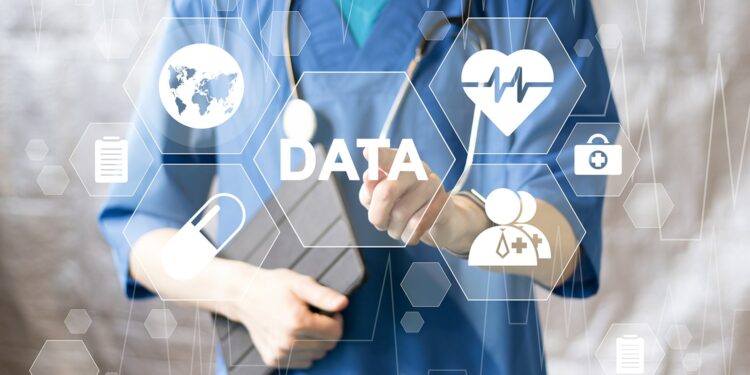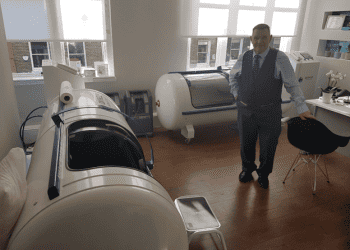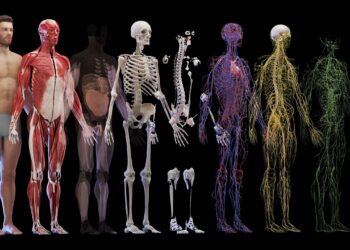Players in the healthcare industry can use big data to get valuable information that would help them provide better care to their patients. By relying on big data, providers can identify trends and anticipate patient care requirements. For example, doctors can use big data to uncover impending ailments and, therefore, better predict diagnosis and treatment outcomes.
How is big data used in healthcare?
The healthcare industry is a haven for data. Patient and supplies data must be recorded and stored. The record keeping must follow specific regulatory requirements to protect the data and avoid potential liabilities.
With the evolution of technology in the healthcare industry, organizations are using systems that make data organization easier. The systems can aggregate a provider’s data, which may include information received from devices that are connected to the Internet of Things (IoT), personally identifiable data from patients that use credit cards to make payments, and more. All these records can be integrated into the healthcare provider’s system and stored in electronic format.
As more healthcare players move to store their data in electronic systems, there is the constant threat of breaches to be addressed. The data is stored in organizational database structures for easy access, retrieval, and editing. These database structures, if not secured, can be compromised to expose the data to malicious parties.
The role of big data in the healthcare industry
Big data enables healthcare IT managers to get real-time information on everything about their practice, from patients to supplies, vendors to equipment.
From the information extracted using big data, organizations can predict and plan for things such as:
- The time when drugs are likely to be in high demand, for example, due to expected outbreaks based on historical data.
- How a patient is likely to react to a treatment course based on the data aggregated from other patients that suffered the same illness.
- The lifespan of equipment or devices used in the hospital based on usage trend data gathered over the years.
The more data the healthcare provider has, the easier it is to plan for treatment activities, inventory management, and overall patient care.
Benefits of big data in the healthcare industry
Big data provides healthcare players with a clear picture of their treatment regimens. The providers can, in turn, give patients more accurate data on the treatment options for better decision making.
For example, a dataset consisting of 10 patients, one of whom died, has a 10 percent fatality rate. Another dataset composed of 100 people, 10 of whom died, also has a fatality rate of 10 percent. With this information, a doctor will know that regardless of the treatment regimen that a patient would choose, the fatality rate will be the same.
The more data that is available, the easier it is to make informed decisions. Below are some reasons why big data is a game changer in the healthcare industry.
Access different types of data
Big data gives healthcare IT managers access to different types of data. When extrapolated and analyzed collectively, the data can help the managers to improve all sectors of their operations.
Big data can provide not only clinical and financial data but also genomic data. Caregivers can analyze genomic data to uncover trends or factors that contribute to various conditions. Further analysis can show whether a condition is related to genetics or the socioeconomic status of a patient.
The combined data generated through big data gives the medical community a broader scope into the causes or factors that contribute to a condition, thereby improving their predictions.
Increased data volume
As healthcare providers automate their processes, the data collection and storage methodologies also evolve. Today, most hospitals have implemented IT systems that allow the movement of data between connected providers. For example, satellite clinics may transfer all their patient data to the parent hospital for record keeping.
The cumulative amount of data collected presents healthcare providers with opportunities to mine and uncover sophisticated trends that can help to improve all facets of the industry.
Faster data sharing speeds
Wearable consumer technology and the Internet of Things (IoT) are making it easier for healthcare providers to get vital data fast. Some doctors are using heart rate monitors connected to the Internet of Things to get data about their patients in real-time.
Various companies are also coming on board to make their devices compatible with IoT in a bid to improve data access in the healthcare industry. For example, Nokia announced plans to revamp the Healthmate app and connect it to a platform through which customers can share their health information securely with their doctors. The company also developed a HIPAA-compliant application known as the Patient Care Platform, through which doctors can access their patients’ Health Mate apps and monitor some vitals in real time.
As more consumer wearables become connected to the IoT and patients start using them to collect personal health data, healthcare providers will have multiple sources of data. This data will have to be collected, transmitted and stored according to HIPAA regulations. Therefore, even before big data can be used for analysis, the security of the data must be guaranteed.
Get accurate data
Big data also ensures that doctors and other medical practitioners get accurate data from different sources. Generally, unsecured data can be manipulated, which can present significant challenges in the healthcare industry. For example, if diagnosis information is intercepted by third parties and compromised, healthcare providers can find themselves in legal trouble.
Therefore, to use big data effectively in healthcare, security standards should be implemented in the access, transmission, and storage of data to ensure its integrity.
Big data & HIPAA requirements
HIPAA requires healthcare organizations and providers to secure protected health information (PHI) through encryption or anonymization. This requirement makes the use of big data in healthcare quite challenging.
According to the HIPAA Privacy Rule, various identifiers need to be removed from patient data. The identifiers include all geographic subdivisions smaller than a state. Read Section 164.514(a) for more information.
One of the ways in which big data can be utilized in the healthcare industry is analyzing data from patients in a geographic location as a guide for socioeconomic status. However, due to the HIPAA requirements for scrubbing off protected health information, getting the data may not be possible unless your organization is HIPAA-compliant.
Using big data in a HIPAA-compliant manner
HIPAA compliance is a must for organizations that dispense medical care, their business associates, and covered entities. For example, cloud providers that offer data storage services to healthcare organizations need to be HIPAA-compliant since their infrastructure is used in the transmission, access, and storage of protected health information.
Big data can help healthcare organizations transform their operations and patient care by identifying trends and acting on the information uncovered. However, for healthcare providers, big data must be approached in line with government and industry regulations like HIPAA.
Your patients need to be confident that their information is secure when input in your infrastructure. You can use various software automation tools to make your healthcare service HIPAA compliant as well as attain other regulatory requirements.






